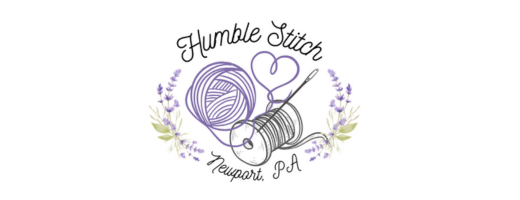Hey, fellow fiber fanatics! Here at Humble Stitch, we're absolutely head-over-heels for yarn. And while we adore all the incredible textures and colors that fill our shelves, there's one fiber that holds a truly special place in our hearts: wool.
Why Wool is a Crafter’s Best Friend
For centuries, wool has been a go-to for crafting cozy creations, and for good reason! It's so much more than just something that keeps you warm. Prepare to be amazed by the incredible facts that make wool yarn a true superstar:
- Naturally Breathable: Unlike synthetic fibers, wool's natural crimp creates tiny air pockets that allow air to circulate. This means garments made from wool are warm in the winter and surprisingly cool in the summer. Talk about a year-round wonder!
- Incredibly Insulating: Those same air pockets trap heat, making wool an exceptional insulator. Whether you're knitting a chunky winter scarf or crocheting toasty socks, wool provides unparalleled warmth.
- Moisture-Wicking Marvel: Believe it or not, wool can absorb up to 30% of its weight in moisture without feeling wet. Wool wicks sweat away from your skin, keeping you comfortable and dry, which is why it's fantastic for activewear too!
- Naturally Water-Resistant: The lanolin in wool, a natural wax produced by sheep, makes it water-resistant. This means spills and light rain are less likely to soak through, keeping your projects looking and feeling great.
- Durable and Resilient: Wool fibers are strong and have a natural elasticity, allowing them to bounce back into shape after being stretched. This means your wool creations will last for years to come, resisting wear and tear.
- Stain-Resistant Superstar: That lanolin we mentioned? It also helps to repel dirt and stains, making wool surprisingly easy to care for.
- Biodegradable and Sustainable: As a natural fiber, wool is a renewable resource and will naturally decompose at the end of its life, making it a more eco-friendly choice.
- Hypoallergenic Hero (for some!): While some individuals are allergic to lanolin, many find wool to be less irritating than synthetic fibers. There are also superwash wools that have had the lanolin removed, making them a great option for those with sensitivities.
- Fire-Resistant: Wool is naturally flame-resistant and self-extinguishing, making it a safer choice for blankets and home textiles.
From cozy sweaters and snuggly blankets to durable socks and intricate tapestries, the possibilities with wool yarn are truly endless!
Not Just Wool: Exploring Other Yarn Fibers
While wool reigns supreme in many ways, the world of yarn is vast and filled with other incredible fibers, each with its own unique set of characteristics and ideal uses. Let's take a closer look at some other popular choices:
Plant-Based Fibers:
-
Cotton:
- Pros: Soft, breathable, absorbent, easy to care for, relatively inexpensive, comes in a wide variety of textures and weights.
- Cons: Can lack elasticity, may shrink or stretch, not as warm as wool, can be prone to pilling.
- Good For: Lightweight garments, baby items, dishcloths, summer projects, home decor.
-
Linen:
- Pros: Strong, durable, breathable, gets softer with wear, has a beautiful drape and sheen.
- Cons: Can be stiff initially, wrinkles easily, less elastic than other fibers.
- Good For: Summer clothing, elegant scarves, home textiles like towels and tablecloths.
-
Bamboo:
- Pros: Soft, silky, breathable, absorbent, naturally antibacterial, sustainable.
- Cons: Can be less durable than other plant fibers, may stretch.
- Good For: Lightweight and drapey garments, baby items, socks, sensitive skin projects.
Animal-Based Fibers (Besides Sheep):
-
Alpaca:
- Pros: Luxurious, soft, warm (often warmer than sheep's wool), hypoallergenic (due to lack of lanolin), beautiful natural luster.
- Cons: Can be more expensive than sheep's wool, less elastic.
- Good For: Soft and warm garments, luxurious accessories, projects for sensitive skin.
-
Mohair:
- Pros: Light and airy, has a beautiful halo (fuzzy texture), strong, takes dye well.
- Cons: Can be itchy for some, may shed, can be more challenging to work with.
- Good For: Lacy shawls, lightweight sweaters, adding a fuzzy texture to projects.
-
Silk:
- Pros: Luxurious, smooth, strong, beautiful drape and sheen, breathable.
- Cons: Expensive, can be delicate, may require hand washing.
- Good For: Elegant scarves, delicate garments, adding a touch of luxury to projects.
Synthetic Fibers:
-
Acrylic:
- Pros: Inexpensive, widely available, easy to care for, comes in a vast array of colors.
- Cons: Not very breathable, can pill easily, may feel less soft than natural fibers, not environmentally friendly.
- Good For: Budget-friendly projects, craft projects, items that need to be machine washable.
-
Polyester:
- Pros: Strong, durable, wrinkle-resistant, water-resistant, often blended with other fibers.
- Cons: Not very breathable on its own, can feel less soft than natural fibers, not environmentally friendly.
- Good For: Outdoor gear, durable items, blends to add strength and wrinkle resistance.
-
Nylon:
- Pros: Strong, elastic, abrasion-resistant, often used in blends for durability.
- Cons: Not very breathable, can feel less soft than natural fibers, not environmentally friendly.
- Good For: Socks, activewear, blends for added strength and stretch.
Blends:
Often, yarns combine different fibers to harness the best qualities of each. For example, a wool-silk blend can offer warmth and drape, while a cotton-acrylic blend can provide softness and washability.
Find Your Perfect Yarn at Humble Stitch in Newport, PA
Whether you're drawn to natural, luxurious, plant-based, or synthetic yarns, the best fiber is the one that fits your project and personal preference.
Come visit us at Humble Stitch, located in the heart of Newport, PA, to feel the fibers for yourself, get expert guidance, and find everything you need for your next project.
Not local? Shop online and browse our curated yarn collections—delivered right to your door.
Happy crafting,
💛 Your fiber-loving friends at Humble Stitch

